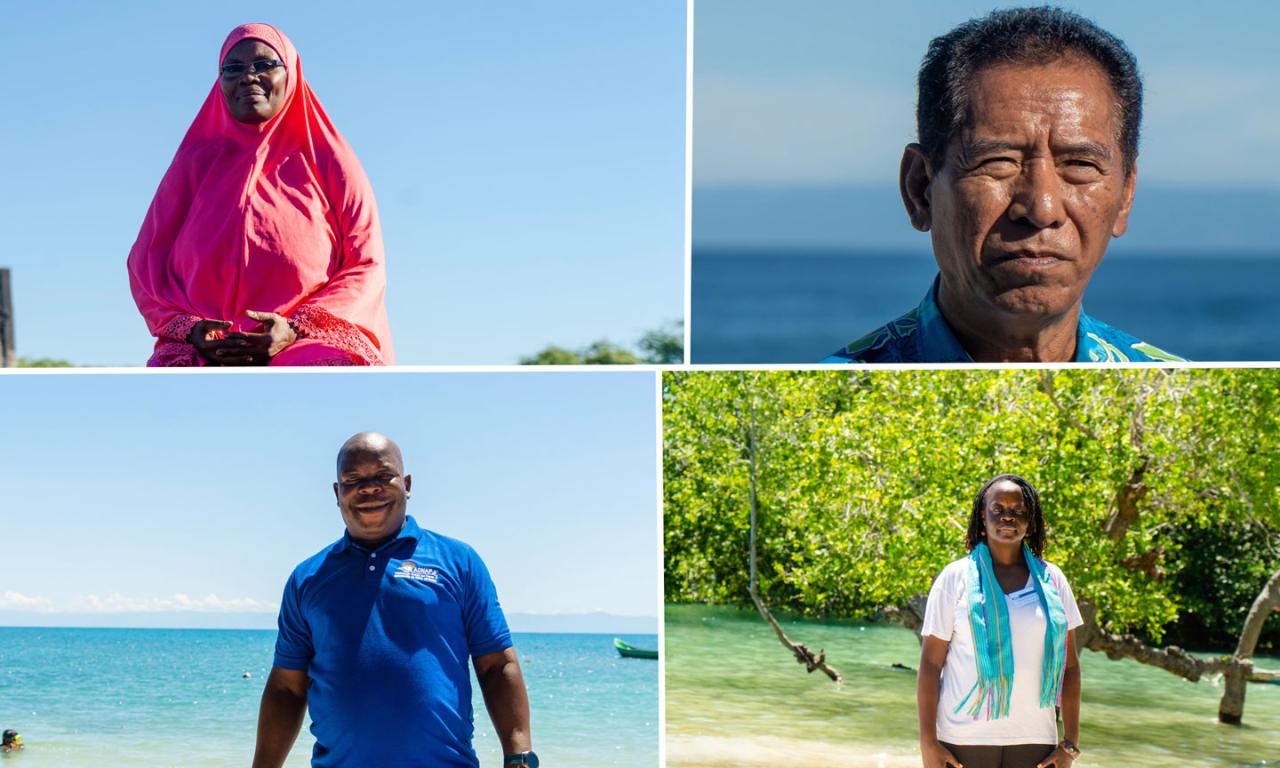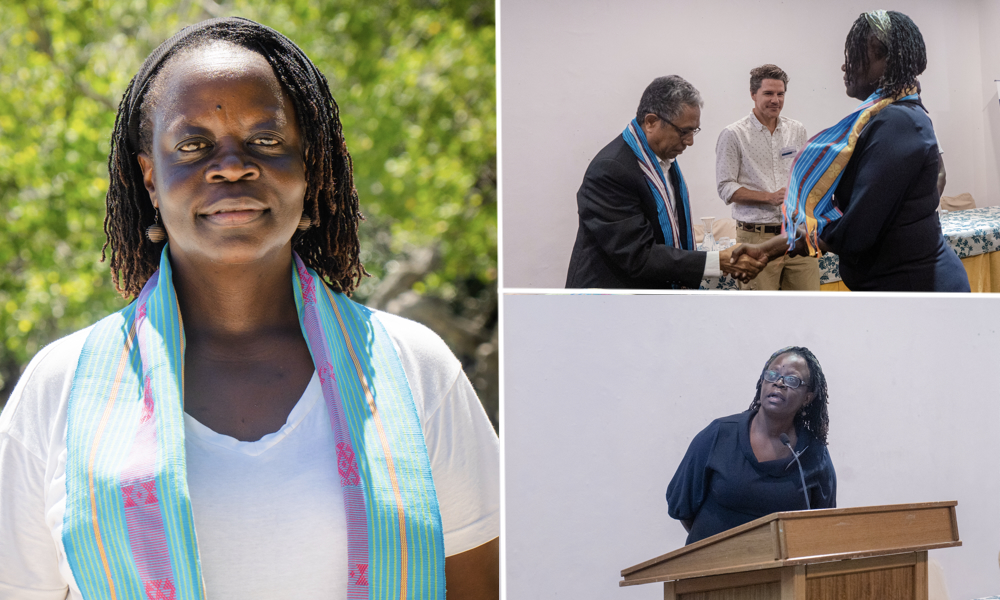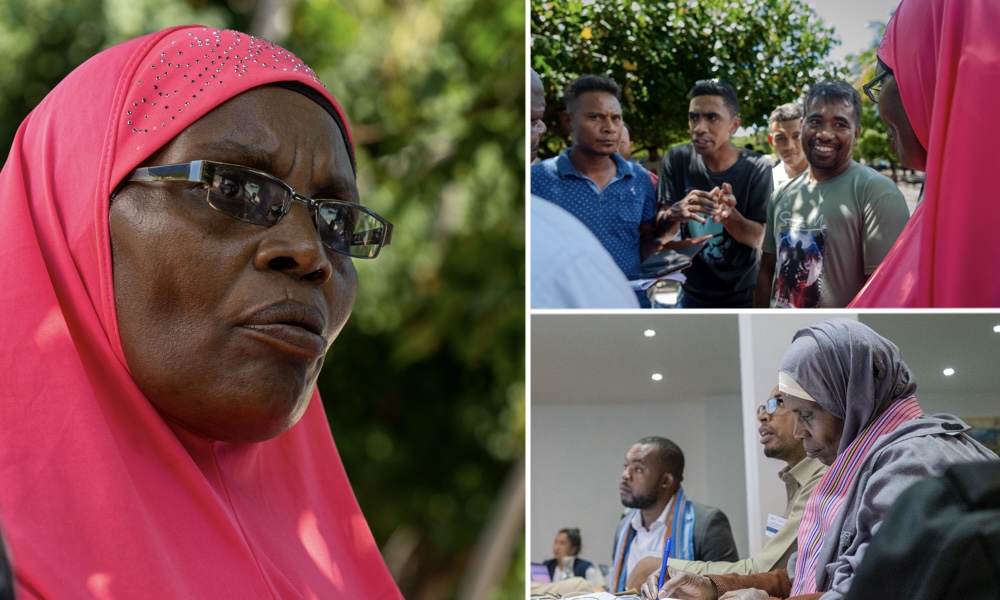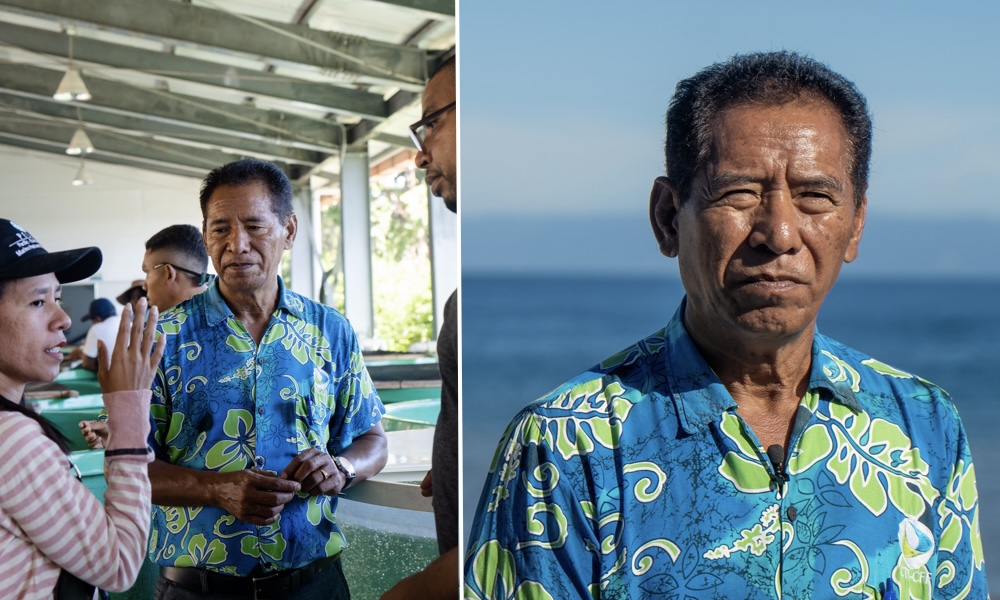
Eight government representatives from Kenya, Mozambique, and Tanzania travelled to Timor-Leste to exchange knowledge and ideas on improving the monitoring of small-scale fisheries (SSF) for their better management.
The trip, embodying south-south collaboration, allowed the delegates to share their country’s challenges and opportunities and learn from each other.
A key focus of the three-day learning trip was hearing about and seeing Timor-Leste’s national digital monitoring system for SSF, Peskas. Developed by WorldFish and co-designed with Timor’s General Directorate of Fisheries, it is a low-cost, open-source system that can be replicated, whole or in part, in other countries to produce better data for informing policy and decision-making.
The learning trip from 23 to 25 April 2024 was organized as part of the Asia–Africa BlueTech Superhighway project. The project will support Kenya, Mozambique, and Zanzibar in adopting parts of Peskas and leveraging new digital and data science approaches to bolster SSF monitoring.
Four participants shared their reflections on their learnings from the south-south knowledge exchange.
KENYA
Dr Gladys Okemwa, Principal Research Scientist, Kenya Marine and Fisheries Research Institute

"This was an exchange trip for us to learn some lessons from the people of Timor Leste, who are also conducting fisheries monitoring similarly to us in Kenya.
One of the issues that I appreciated was that we are all having very similar experiences and challenges in terms of monitoring fisheries.
A key challenge is inconsistent data collection due to limited funding. We don't have consistent funding, which affects the quality of data that we collect.
The other challenge is to do with appropriate monitoring systems and systems for archiving the data, as we have been moving from paper-based data collection to digital data collection.
We realise that the [Peskas] platform here is slightly more advanced; it's able to validate data that is entered. We'd like to see how we can get our system upgraded to that level.
[This collaboration] is important because we get exposed to different scenarios. We also get to realize the challenges we experienced back home in Kenya.
We also realize that we are at different levels of advancement in certain aspects back home, whereas some aspects here are also advanced. So we're able to take that back home."
MOZAMBIQUE
Pedro Pires, Head of Fisheries Monitoring Department, National Fisheries Administration

“We are facing technical problems [in Mozambique], because the database was designed in Access in a very, very old version. It is no longer easy for us to work with this database.
So, we are adopting another methodology, Open Artfish, that doesn’t have this problem.
It would be interesting for us to be able to connect our Open Artfish with Peskas to help us analyze the data and have improved data to support those who manage our country’s existing resources.
In Mozambique, we only control semi-industrial and industrial boats through vessel monitoring systems. Now, we see that monitoring activities in artisanal fishing is also possible.
Here [in Timor-Leste], they can control the fisheries through the good programs adopted for managing the fisheries. We can also replicate the same… to understand where fishermen go, and where the resources are more abundant.
[This trip] is a great learning experience for us to share experiences with Timor and our African brothers. These brothers have other experiences; they have other programs that they use to monitor artisanal fishing, and we were able to exchange experiences.”
ZANZIBAR
Bishara Ali Juma, Fisheries Researcher, Zanzibar Fisheries and Marine Resources Research Institute, Tanzania

"I have been working in fisheries for such a long time. [From this trip] I learned we have methods of data collection in Zanzibar fisheries and, here, there are more methods of data collection.
It is a very good idea if we take that [Peskas] method, and transfer [it] to our country because it provides more information.
For example, in our data, we can get weight, time, type of species or fish and maybe the selling price of that fish. But in the Peskas system, they can get even the length of the species and can measure the quantity of the species.
[With] that information, you can use it to solve so many questions just sitting in our heads. By using Peskas, some of the [research] questions are easily answered.
The challenge we are facing is because the fishers are so many, you can’t sample all fish. We just have to sample a small number of people.
Some of the enumerators have low knowledge, so it needs more energy to train them until they know how to collect the data.
First, when I go back home, I will advise my leaders in my work to take more intention; to study more and join together to get part of the Peskas system.
This sharing of information will give [us] new ideas, a new picture, and methods of sustainably utilizing our marine resources."
TIMOR-LESTE
Lino de Jesus Martins, Director of Marine Spatial Planning and Aquatic Resources Management, Ministry of Agriculture, Livestock, Fisheries, and Forestry

"At the workshop, we shared information with each other about what we’ve learned in the past, and what we will do in the future.
We from the Timor-Leste Peskas team learned new things, such as the database systems adopted in other countries but not introduced in Timor-Leste.
So, from that, we gained some insights and new knowledge. We will try to adopt them for data management in the fisheries sector.
We hope that we can continue cooperating by sharing information with African colleagues so we can effectively collaborate in the future.
It is important that we work together on how to develop fisheries in the global south.
Our learning doesn’t end with this workshop. We can continue doing this collaboration as it is important for our countries, particularly for fisheries monitoring."
Read blogpost on the exchange visit: How Timor-Leste is sparking new ideas for African digital fisheries monitoring
